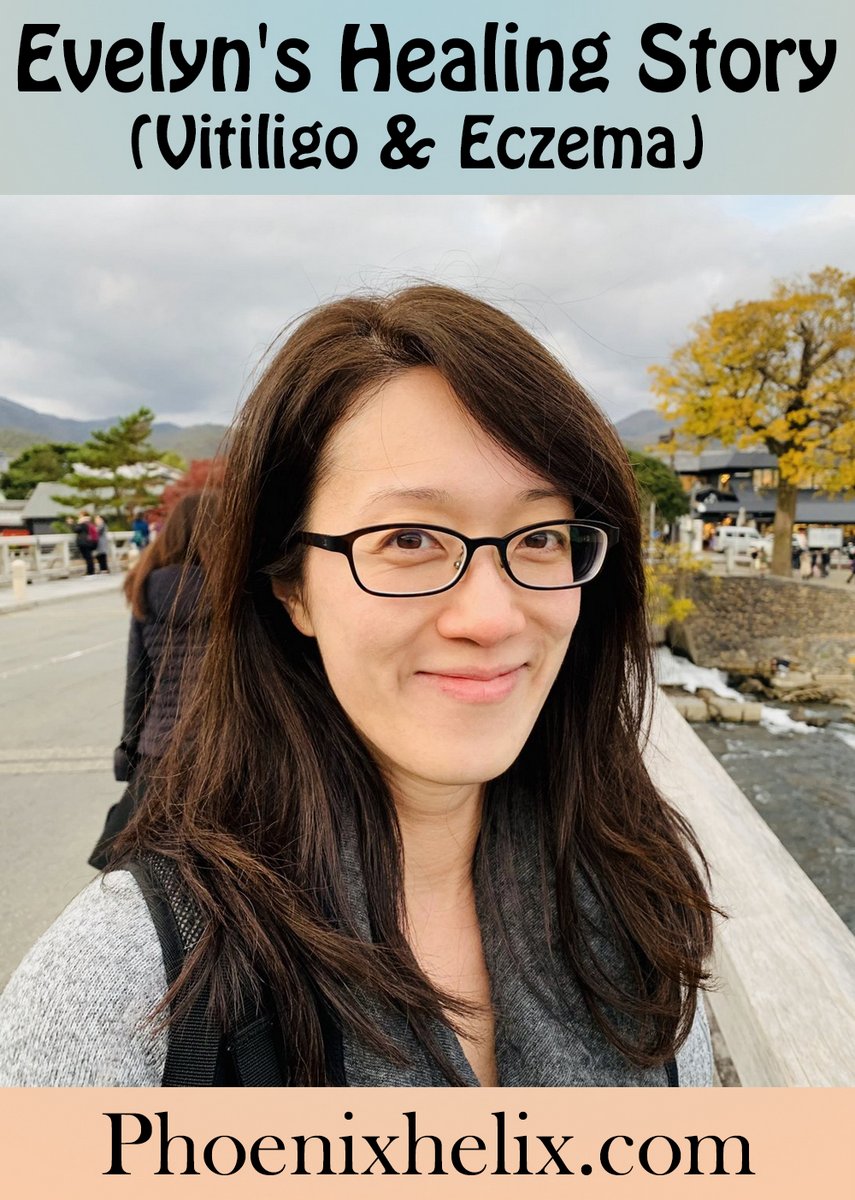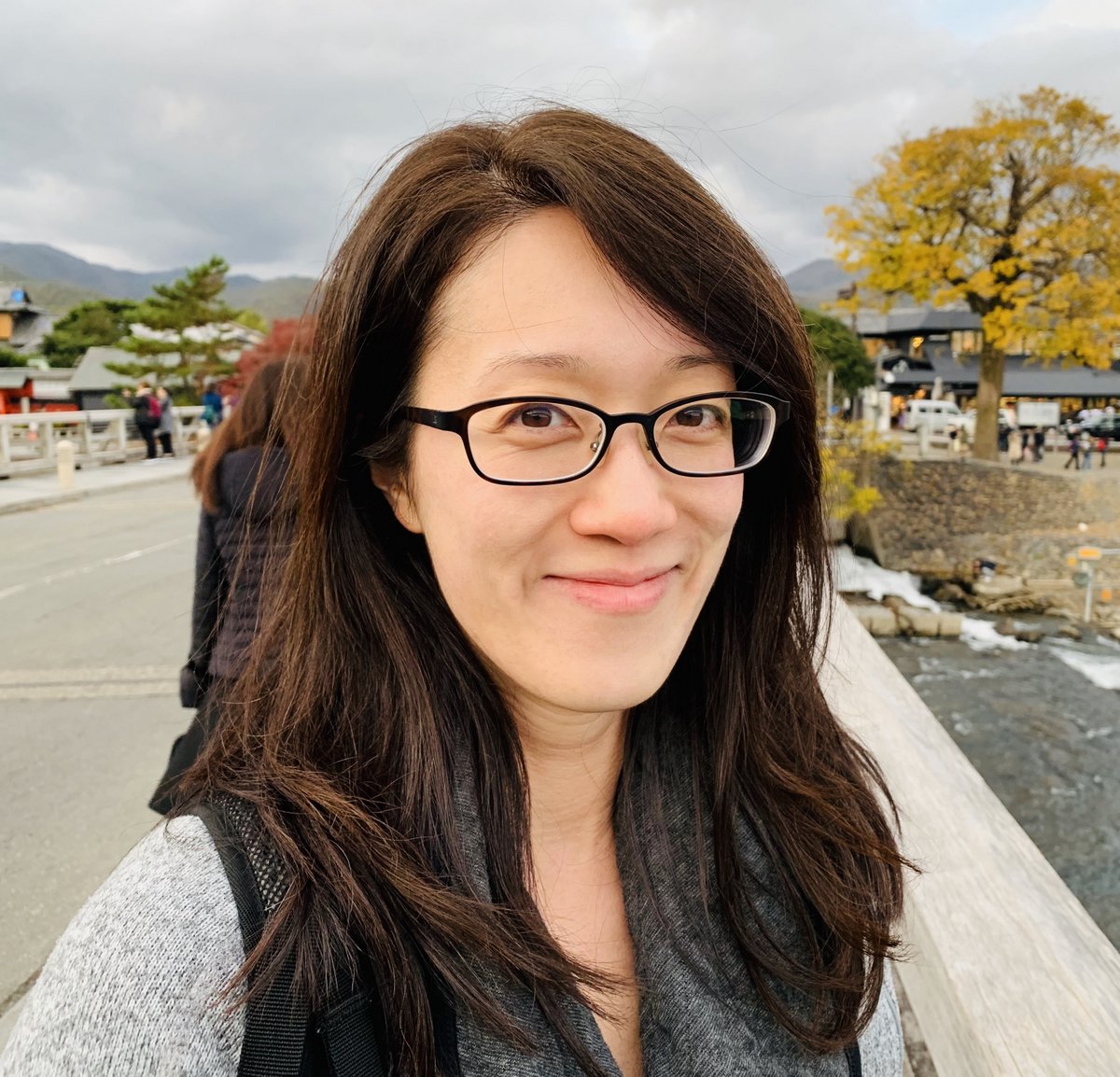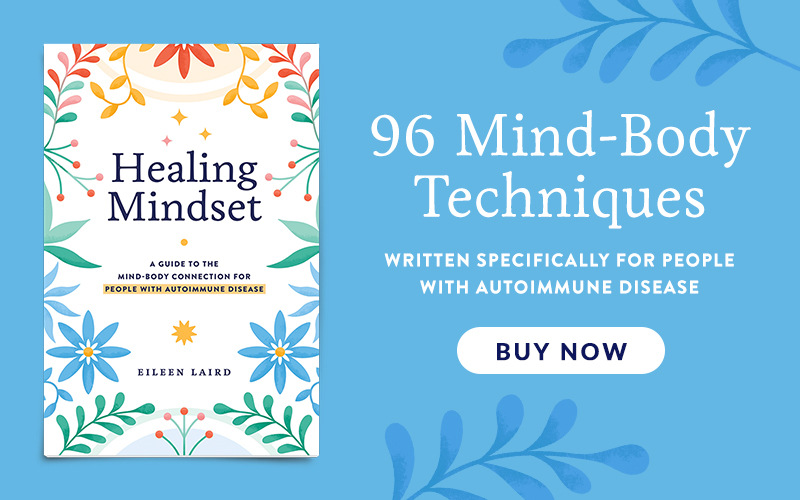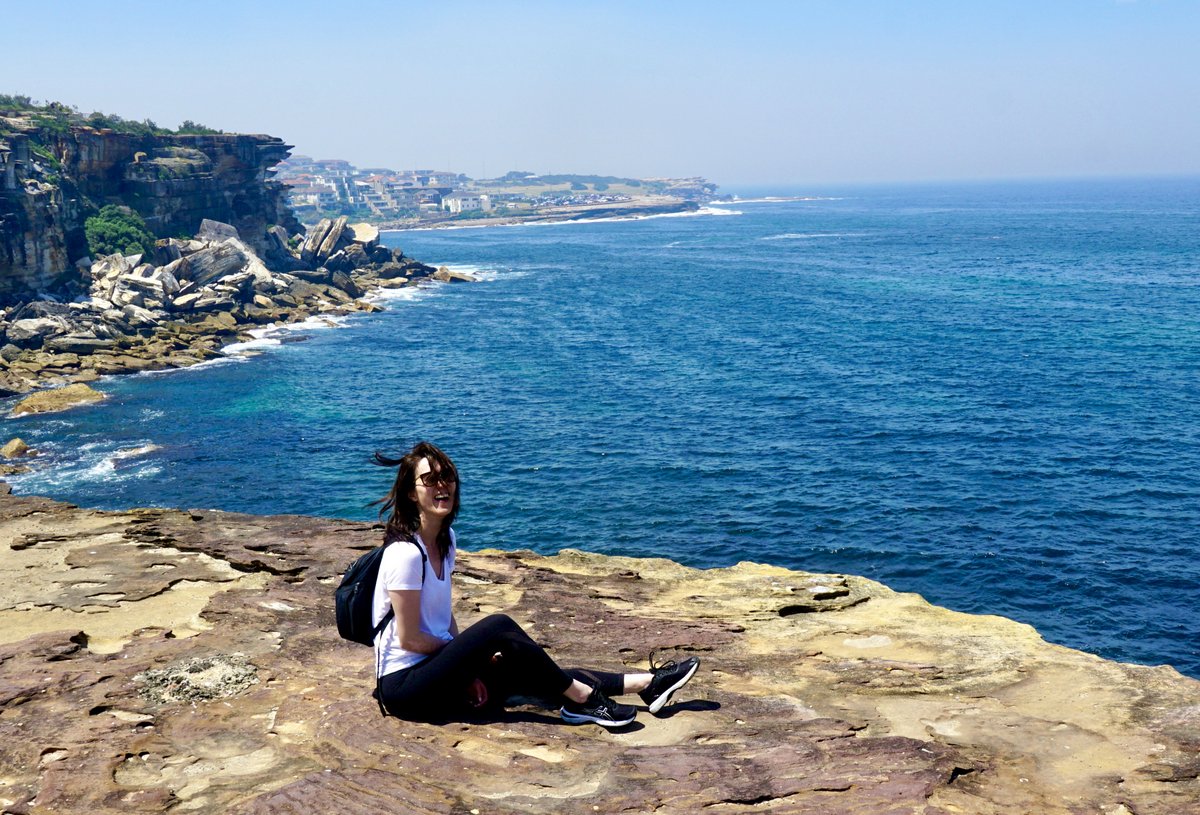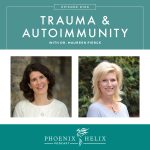“I believe absolutely that it is in sharing the most vulnerable aspects of our journeys that we support each other to find grace and strength and healing during equally challenging times.”
~ Baden Lashkov
Living a Resilient Autoimmune Life
Evelyn Thai overcame life-long eczema that she thought was just part of her family genetics. She also stopped her progression of vitiligo. In this interview, she honestly shares her curving path to health, including stress-eating impulses she had to overcome, and the importance of the mind-body connection. She learned that healing isn’t just about physical symptoms. It’s about mental and emotional health as well.
What were your first symptoms? When did you learn what it was?
My eczema started in childhood. I would get seemingly random flare-ups of red, itchy patches all over my body, particularly around my underarms, elbows, hands, and knees. The more I scratched, the worse they seemed to get. It ran in the family, so I didn’t think too much of it. I assumed it was something I just had to live with.
I was diagnosed with non-segmental vitiligo when I was 19 years old. My first symptom started as a small, white spot at the back of my neck. The onset occurred during a time in my life when I was going through an intense amount of emotional and mental stress from helping to care for my mom. She was going through cancer, and I felt helpless as she eventually succumbed to her illness. The loss of color from my skin happened in rapid start-and-stop cycles. In less than a year, my face, upper back, arms, lower torso, and legs were affected.
Can you describe what it was like for you, when your condition was at its worst?
My condition was at its worst while I was attending college. It was likely a combination of factors. The biggest one being that I didn’t take the time for self-care or to listen to my body. I didn’t know how to handle the pain and grief of losing a parent, so I kept myself busy with being a full-time student on top of working 29 hours a week. I would get home exhausted and often binge on take-out or packaged snack foods. During this time, the progression of depigmentation was particularly bad. It got to the point where I became so self-conscious that I would not head outside without first spending a couple of hours putting on layers of water-resistant makeup to cover the exposed patches. I would sometimes make up an excuse to cancel on people, or purposefully wear long sleeve tops and pants, even in warm weather, in an effort to hide the abnormal skin. I felt isolated by my disease, and it became pretty emotionally and mentally exhausting.
What treatment methods did you try before dietary intervention – conventional or alternative?
I wasn’t aware of other options at the time, so ended up going the conventional route. In 2008, I saw a dermatologist who informed me the patches covered enough of my body that I was an eligible candidate for phototherapy. This involved dosing my face and body with UVB light 3 times a week to try to stimulate repigmentation. It was not a cure, and there was no guarantee it would work. Side effects included skin damage and an increased risk for skin cancer. After each session, I felt like I had a bad sunburn. My skin turned bright red, itchy and was tender to the touch. This was definitely not the most ideal option, but at least it gave me a way to try to tackle this disease. After the first 6 months of phototherapy, the patches on my face eventually repigmented. I still distinctly remember the moment I looked into a mirror, and finally saw my face in one uniform shade for the first time in years. Unfortunately, the patches on the rest of my body didn’t respond as well. After trying for another 2.5 years with disappointing results, I decided to stop the treatment because of my increased worry about developing skin cancer.
Which healing diet(s) did you choose?
Up until this point, I’ve been told by different doctors that vitiligo has no known cause or cure, and there was nothing much I could do other than to try topical steroids or phototherapy. And who was I to question them? They were the professionals. A couple weeks before stopping phototherapy, my dermatologist conducted an autoimmune-related lifestyle survey for a study he was conducting. Imagine the light bulb that went off when I saw how many questions revolved around specific types of foods. This was my aha moment. While doing my own research, I found some supporting articles about the inflammatory effects of eating gluten, dairy, and nightshades and decided to cut them out of my diet. I figured I had zero options in front of me, so what have I got to lose? In the beginning, I was highly motivated and managed to strictly follow the diet. However, my vitiligo continued to spread, and I only experienced some relief in regard to my eczema and digestive issues. So, I started sliding back into old habits as my motivation waned. In 2013, my friend introduced me to Sarah Ballantyne’s, The Paleo Approach. The book was a life changer. Having a comprehensive resource that explained the science (and all the other puzzle pieces) helped me to better understand why I needed to commit to certain dietary and lifestyle changes. It made me realize that my initial attempt to clean up my diet was probably not as successful since I didn’t change my underlying habits. Sure, I was buying products that were gluten-free, dairy-free, and nightshade-free, but I was still eating highly processed foods, overloading on vegan cheese alternatives, and running on 3-4 cups of coffee daily.
How fast did you see results?
Within the first year, I noticed the spread of depigmentation starting to slow. I no longer went through rapid phases of losing color. The appearance of new spots drastically reduced as well.
What other areas of your health improved simultaneously?
Once I fully committed to changing the habits that helped to address my leaky gut, I noticed improvements with my digestion, and no longer had “random” flare-ups of eczema.
What symptoms still remain?
Currently, my white patches still remain, but the spread of depigmentation has completely stopped. It’s been almost 5 years since a new spot has developed.
What other things do you do outside of diet to support your health and healing?
Incorporating activities that help to reduce stress is a big one for me, especially as someone who tends to get bogged down by it. I discovered Pilates in my late 20’s and still love it to this day, over 10 years later. The mind-body focus required to engage and be present during class helps me feel more centered and gets me out of my own head. It’s also helped me to slowly change my habit of shallow breathing. Having a stronger core from my practice is always a nice bonus. I also try my best to be an informed consumer when purchasing cleaning and skin products. EWG’s website has been a great resource for checking on possible toxic ingredients and finding safer alternatives.
What role has medication played in your journey?
I would often turn to OTC hydrocortisone cream and calamine lotion to combat the intense itching and inflammation from my eczema. While undergoing UVB phototherapy for vitiligo, I was prescribed three different topical steroids that I applied twice daily to the affected areas of my body. Soon after, I started to develop adult acne as a side effect. Vitiligo was already such a visible disease on my face that adding acne on top of that left me feeling even more frustrated and hopeless. For the sake of my emotional wellbeing, I probably should have stopped using topical steroids then, but I was scared to. My treatments were starting to help repigment a few patches, and I didn’t want to change the “magic formula” that helped to make that happen. After about 6 months, it was actually my dermatologist who advocated that I stop using the steroids and just continue with the phototherapy sessions.
How strict were/are you on the dietary protocol? Any “cheats”?
I would like to say I strictly followed protocol, but there were times when I “cheated” during my transition. I would find myself standing in front of the fridge debating whether it’s worth eating that snack or food that I knew would cause a reaction. Every single time I gave in, I would regret it a few days later when my digestive issues, acne, and eczema acted up. I’m sure I was also setting back the progress I was making towards quieting my vitiligo symptoms. At the end of the day, it wasn’t worth it compared to the relief of feeling well and being able to effectively manage my symptoms after all this time.
Do you intend to do this diet forever, or do you hope to wean yourself off it eventually?
At this point, I eat a personalized version of the AIP. I’ve successfully reintroduced chicken and duck eggs, grass-fed ghee, some legumes (green beans and peas), and almost all the spices (other than nightshade-based ones). I also enjoy chocolate and soaked nuts and seeds in moderation. If I’m having a particularly stressful week and not taking care of myself, my tolerance of these foods are affected. During these times, my body feels better when I go back to eliminating the chocolate, nuts, and seeds. Eating this way has become practically second nature. Visually seeing the change to my skin and managing my symptoms without any side-effects are big motivators for me to stick with it.
What were/are the challenges for you in sticking to the diet?
As a person who tends to stress eat, not automatically reaching for junky snacks was a challenge. It’s still something I struggle with today. To help myself out, my partner and I rarely stock processed snacks at home.
Who supports you in your healing journey?
My partner and my close friends. I feel so lucky and grateful to have these people in my life, especially when I was going through a lot of the tough adjustments where I was deeply frustrated, scared, and pretty darn moody (talk about true friends, right?).
What advice would you give to people with autoimmune disease who are just starting to consider diet and lifestyle changes?
It’s going to be hard. It might even feel unfair at times. But at the end of the day, these changes are an investment in yourself, your long-term health and wellness. And you are worth it! Find what works for you and be honest with yourself. Small steps do add up. And never underestimate the value of having a good support system!
Evelyn is now a Board Certified Holistic Nutritionist. You can connect with her through her website: Living Balanced Nutrition.
Other Healing Stories
This is part of a series of autoimmune success stories. Click here to see the full list. They are also a regular feature of my podcast: Phoenix Helix.

